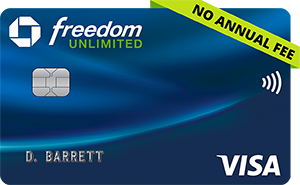Combining the Chase Freedom Unlimited® with Other Credit Cards
While the Chase Freedom Unlimited® is a powerful standalone card, its true potential is unlocked when it is combined with other cards, particularly within the Chase Ultimate Rewards ecosystem. This strategic approach, often referred to as a "card combination" or "stack," allows you to earn more valuable points and gain access to a wider range of high-value redemption options.
For a foundational understanding of the card's features, read our pillar page on Maximizing Your Rewards with the Chase Freedom Unlimited®.
The key to the combination: Pooling points
The magic of a Chase credit card combination lies in the ability to move the Ultimate Rewards points earned on one card to another. For the Freedom Unlimited®, this means transferring the rewards you earn, which are initially redeemable for cash back, to another premium Chase card that offers more valuable redemption options.The "Chase duo": Freedom Unlimited® and Sapphire Preferred®
A popular and effective combination pairs the Chase Freedom Unlimited® with the Chase Sapphire Preferred®. This duo is an excellent entry point into the world of strategic rewards earning.Building the "Chase trifecta" for maximum rewards
For the most advanced rewards strategy, you can build a "trifecta" by adding a third card, such as the no-annual-fee Chase Freedom Flex®.Other combination possibilities
While the Chase "duo" and "trifecta" are common, the Freedom Unlimited® can be combined with other cards as well, including business cards in the Chase Ultimate Rewards ecosystem. This provides additional flexibility for maximizing rewards.Is a combination right for you?
A multi-card strategy is best for rewards enthusiasts who are organized and willing to put in the extra effort to track spending and pool points. For a more detailed look at whether the Freedom Unlimited®, or a combination, is the right card for your financial habits, see our guide on Is the Chase Freedom Unlimited Right for You? A Practical Guide.Ready to apply?

Chase Freedom Unlimited®
Related Articles
Found this guide helpful? Bookmark it for future reference as you continue your financial journey!
Experian Boost: A Comprehensive Guide to Boosting Your Free Credit Score
FICO® Credit Scores
FICO® Score Ranges:
- Exceptional: 800–850
- Very Good: 740–799
- Good: 670–739
- Fair: 580–669
- Poor: 300–579
What is a Credit Score?
A credit score is a three-digit number, typically ranging from 300 to 850, that predicts your creditworthiness—how likely you are to repay borrowed money on time. Lenders use this score to assess the risk of lending to you and to determine the interest rates and terms of any credit you might receive.
Why is a Credit Score Important?
A credit score is important because it acts as your financial reputation. Lenders, landlords, insurers, and employers use this single number to quickly judge how reliable you are with money. A higher score helps you qualify for loans and credit cards, often securing lower interest rates that can save you significant money. Conversely, a poor credit score can lead to application denials or much higher costs for borrowing, making it a key factor in your overall financial opportunities.
FICO® Credit Score Facts
- Three-Digit Number: Like other credit scores, FICO® Scores are a three-digit number that summarizes a consumer's credit risk.
- Range: Most standard FICO® Scores range from 300 to 850. Higher scores indicate lower credit risk.
- Data Source: FICO® Scores are calculated using data from your credit reports maintained by the three major credit bureaus: Experian, Equifax, and TransUnion. Your score may vary slightly depending on which bureau's data is used.
- Industry Standard: Lenders rely on FICO® Scores for mortgages, auto loans, and credit cards because they provide a consistent, statistically sound assessment of the likelihood that a borrower will repay their debt.
Note: Credit scores are used to represent the creditworthiness of a person and may be one indicator to the credit type you are eligible for. However, credit score alone does not guarantee or imply approval for any credit card product.
